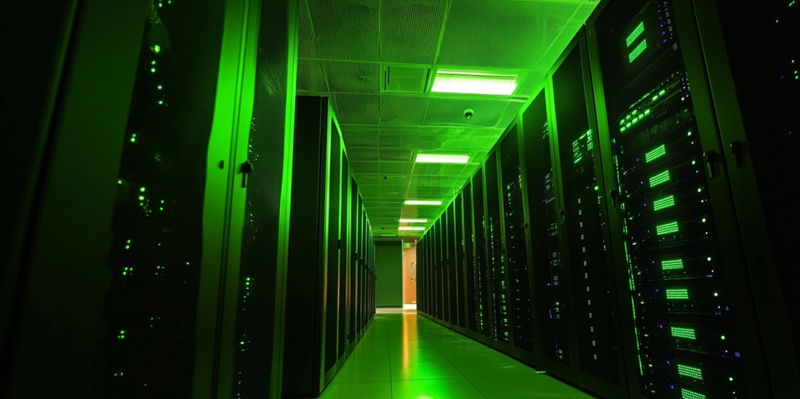New Zealand is set to become a pioneer in integrating green hydrogen power into the data center industry through an ambitious project marking a significant investment in renewable energy and cutting-edge technology. This groundbreaking endeavor is a collaboration between Mobii Green Energy Group and North Rakaia Ltd., which was formalized through the “Green Hi-City Cooperation Agreement” signed at Christchurch Town Hall. The project is not only ambitious in its environmental aspirations but also in its scale and financial backing, boasting a staggering $2 billion investment dedicated to the development of substantial renewable energy resources, including 850 megawatts (MW) of solar power and 300 MW of wind power.
At the heart of this project lies a giant leap towards sustainability with plans for a green hydrogen production facility and a complementary hydrogen power plant. This initiative also includes the creation of a containerized computing power center designed to accommodate 5,120 ##00 servers. This state-of-the-art center is projected to be operational by the end of 2025, alongside ambitious plans for green hydrogen trial power generation and solar power supply. The successful execution of this vision is expected to set a precedent in the technology industry, significantly reducing carbon footprints and fostering enhanced operational efficiencies through sustainable energy solutions.
Collaboration and Division of Labor
The roles and responsibilities within this enormous undertaking have been meticulously planned out to ensure the project’s success. North Rakaia Ltd. will contribute by providing the necessary land and a crucial 1.15GW green energy permit. Additionally, North Rakaia Ltd. is entering a $25 million Pre-A financing round to further bolster the project’s financial foundation. Mobii Green Energy will take charge of developing the extensive solar infrastructure necessary for the project, working to harness New Zealand’s abundant sunlight for energy production.
The technical aspects of the project are equally vital, with Tatung System Technologies Inc. assigned the role of procuring and managing Supermicro’s liquid-cooled servers. These servers represent a crucial technological component, enabling efficient and sustainable data processing. Google Cloud and Zen42.ai, a Blockchain firm, will oversee the operational management of the green computing power center. Remarkably, Vnet, a Chinese operator, has been contracted to handle the construction of the data center, which could reach an astounding 750MW in total capacity. The clear division of labor among these entities reflects a well-planned approach to a highly complex project, leveraging the expertise of each participant to ensure optimal results.
Implications for the Tech and Energy Sectors
This initiative is reflective of a broader trend within the tech industry toward sustainable energy solutions and reduced carbon emissions. Hydrogen, as a clean energy source, offers substantial environmental benefits by producing only water as a byproduct when used in fuel cells. The project undertaken by Mobii Green Energy and North Rakaia Ltd. serves as a model of how renewable energy can be seamlessly integrated into data center operations, offering a blueprint for future developments in the sector.
The implications of such an initiative extend beyond environmental considerations. If successful, this project could revolutionize how data centers worldwide approach their energy consumption, setting new benchmarks for efficiency and sustainability. The integration of hydrogen power, alongside traditional solar and wind energy sources, represents a multi-faceted approach to renewable energy that could inspire similar projects globally. This endeavor also underscores the importance of innovative technological infrastructure in achieving large-scale sustainability goals, illustrating how cross-sector collaboration can drive significant advancements in green technology.
A Vision for the Future
New Zealand is set to be a trailblazer in integrating green hydrogen power into the data center sector with an ambitious project, marking a significant investment in renewable energy and modern technology. This groundbreaking initiative is a collaboration between Mobii Green Energy Group and North Rakaia Ltd., formalized through the “Green Hi-City Cooperation Agreement” signed at Christchurch Town Hall. This venture is not only notable for its environmental goals but also for its scope and financial support, with a whopping $2 billion investment aimed at developing considerable renewable energy resources, including 850 megawatts (MW) of solar power and 300 MW of wind power.
Central to this endeavor is the development of a green hydrogen production facility along with a supporting hydrogen power plant. Additionally, the project plans to create a containerized computing power center that will house 5,120 ##00 servers. This cutting-edge center is expected to become operational by the end of 2025, along with plans for trial green hydrogen power generation and solar energy supply. The project’s successful execution is anticipated to set a new standard in the tech industry by significantly cutting carbon emissions and boosting operational efficiencies through sustainable energy solutions.

